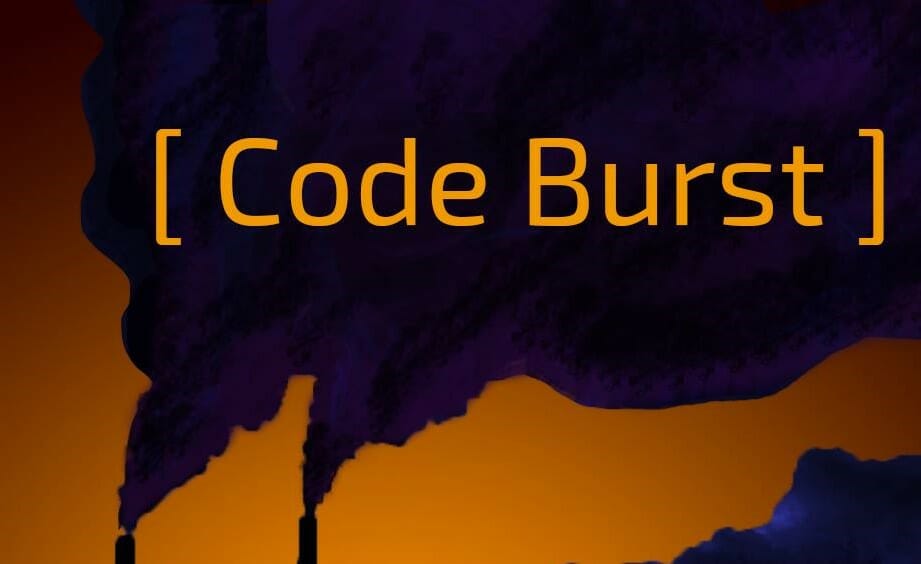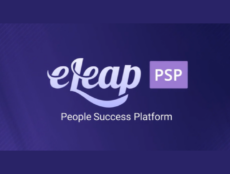
Articles
Editor’s Picks
“I Wish I Got a Degree” Billyjack Buzzard Reflects on His Time at Mined Minds
By Henry Kronk
September 09, 2019
“In the beginning, I really believed in this company, and really thought it was going somewhere. But in the end, I saw their true colors. If I had known then what I know now, I would have went and got a two-year degree in computer science. And I could have done that, because I just wasted two years with them. That’s the part that gets me really, really upset. The reason I was pushing myself to do this everyday was to not go back to coal mining. That was my drive: ‘I do not want to go back underground. I do not want to go back underground. If I can give this 110%, I feel that it’s going to pay off.’ At the end of the game, I still have to back underground because they abruptly fired me. I wish I would have got a degree.” – Billyjack Buzzard
Over a year ago, in the early weeks of 2018, a colleague shared with me a story about a coding bootcamp that was looking to train out-of-work coal miners for jobs in the tech industry. Mined Minds was launched in southwestern Pennsylvania by Amanda Laucher, who comes from a family of coal miners, along with her husband, Jonathan Graham. Their organization had received a lot of positive media coverage from outlets like NPR, CNN, and CBS. They, along with other workforce development organizations, had also received a grant from the Appalachian Regional Commission of $1.5 million, and they had begun training dozens of future coders.
Their model seemed really promising. They would train people for free, and then employ them as apprentices for a time with an affiliated for-profit software consultancy. They said they could train just about anyone to do this work, regardless of their previous experience, and even gave some of their learners new computers. I think a lot of people got excited by their story because, if it could work in Appalachia, maybe it could work in other places too.
But then, other reports started emerging. Some graduates of the program were reportedly laid off after just a few days of work on the for-profit end.
In late 2017, two former learners who had gone through the program, Ty Cook and Tori Frame, launched a class action lawsuit against Mined Minds, arguing that they had been promised pay to attend the program that they never received.
The first three episodes of Code Burst went over everything up to that point. Check out the first one here.
The Lawsuit Against Mined Minds Has Been Dropped
When I began covering this story, I believed that the suit would progress, and there would be more and more to report. But then nothing happened for months. Depositions did not occur until the spring of 2019. And when they did, they weren’t the kind that you would find in a John Grisham novel.
According to articles out from Postindustrial and the New York Times, both of which gained access to sections of the sworn deposition, Amanda Laucher doubled down on her position that the students were only promised pay as apprentices, not as students. In other words, not much changed. Both sides maintained their positions.
Prior to that, former Mined Minds students told me that that the organization had dismissed all of their existing classes. The only people working in Mined Minds were members of the Laucher family: Amanda, her brother Marvin, and her sister, Heather Shockney. It was unclear if the Lauchers were still even operating as Mined Minds or freelancing on their own.
Amanda also tweeted that she had been accepted into law school. It appeared that things were winding down.
Then on August 14, Jonathan Graham tweeted the following:
Pleased to announce that the lawsuit against @MinedMinds has been dismissed.
The legal process worked as intended:
– anyone can file a complaint
– evidence is collected
– depositions are taken
– case dismissedWe wish the very best to the 2 program dropouts that filed the suit.
— JP Graham (@graham_jp) August 14, 2019
When I began reporting on Mined Minds, many folks I contacted didn’t want to get in touch with me. But throughout this summer, more and more people started reaching out. These follow up episodes are intended to capture the experiences of some of the former learners of Mined Minds.
It all started with a great idea: coding work is in high demand. So if someone could train people for this work in underserved communities, that can raise everyone up and bring business back into any region. These episodes are intended to discuss where that vision fell to the wayside, and reality set in.
This episode, I got in touch with Billyjack Buzzard. Seven generations of his family have worked as coal miners. He got laid off, started working in a tattoo shop, and then took the MIned Minds course offered in Clendenin, West Virginia. He was exactly the type of person Mined Minds was looking to serve, and he proved to be a highly charismatic spokesperson for the organization while working there. As such, he frequently spoke to the media about his experience at Mined Minds. For example, here is speaking with CBS.
The accounts in that report have obviously not come to pass. I’m going to let him tell the rest.
This transcript has been lightly edited.
Billyjack Buzzard: I was in West Virginia when I first heard about [Mined Minds]. I was at the tattoo shop. I heard they were offering free classes to laid-off coal miners to get them back into the workforce. At first, I was a little skeptical about it. They were going to do it for free? It was a little sketchy at first. The skepticism stayed with me through the first week or so. It was a little unorganized because they had two different classes going on. There was the Clendenin class, which I was a part of, and they had the Beckley class. We were required to be there two days a week. Beckley was opposite us.
So first thoughts: I still thought it might be a scam.
Henry Kronk: Were you working full-time, five days a week, and did you alter that schedule to take part in the course?
BB: Yeah, I was working at the tattoo shop at the time. I would attend Mined Minds for the mandatory days. Mine were Mondays and Wednesdays. I had to be there eight hours. I would also go every day until the tattoo shop would open up. I would leave at 12:00 PM or 1:00 PM. But on Mondays and Wednesdays, I would stay there the full eight hours and then go back to the tattoo shop after. So I worked my schedule around them.
HK: So you were going in to the Clendenin office every day of the week?
BB: Yes.
HK: Just to … what, do extra lessons?
BB: That was me trying to better myself. They would give us assignments or homework of some sort, and if I wasn’t caught up, I would finish that. If I was caught up, I would go in there and add something to the homework. Once I started getting the hang of CSS, I got really intrigued by JavaScript. So I went through and added a lot of JavaScript on my old assignments, and even continue to add that on to my new assignments.
But those extra days helped me. They benefited me.
HK: So in the grand scheme of things, compared to other people, you were really going above and beyond what they were asking for.
BB: Right. Once I figured out that I really did enjoy what I was doing, it was there. I pushed myself to another level. I could see the potential of making really good money in this field. Being a tattoo artist, having that design aspect, was good. You know, knowing what looks good, knowing what colors compliment each other. On top of that, knowing how to build something from the back-end … That’s why I pushed myself. I saw the potential for how much this could help me.
HK: As the course went on, and you continued to learn, did you change your mind about whether or not the whole thing was a scam?
BB: Yeah, totally. When I started going everyday, they had 100% of me. I gave them everything I could and more. They did see that. As time went on, I really believed in this. I thought this could bring West Virginia—not just coal miners—this could bring West Virginia to another level. Any skepticism I had went away within the first two weeks.
HK: So you wrap up with your cohort, you finish the learning process, and you begin working as an apprentice with the for-profit consultancy. How are you feeling as you start getting to work … how is the day-to-day at that point?
BB: At that point, it’s kind of baby steps. They really didn’t throw anything that we couldn’t handle at us. You could tell at some point, as we went on, that that excuse would only last so long. As I’m coming up at that time, some of the guys who are a few months ahead of me, they’re saying, ‘You should know better than this.’
I was an apprentice for six months. Then I was brought on as a full-time employee. We had a couple people leave. They asked me to be an instructor when they opened the Logan office.
Bootstrapping No Matter What
HK: Did you sign a contract at all when you became a full-time employee?
BB: I signed an employee handbook, I never got a contract. Now, when I became an apprentice, I got a contract. When I became an employee, they pulled me over to a Zoom meeting and said, ‘Hey, you’ve been doing a really good job, and we want to bring you on full-time.’
HK: Did anything change when that happened?
BB: I did get more one-on-one contact with the clients we were working with. They also made me an instructor around the same time. I had to take care of two classes on top of doing client work. If I didn’t produce on client work, there would be backlash over it. They’d always tell me, ‘Balance it. Juggle it.’
To be frankly honest, the class took the blunt end of that deal because I was too focused on doing my job to help out the class the way I should have. I was in there five days a week. And the class, again, was two mandatory days a week, but we would have the office open so we would have students come in on off days like I had done. I wasn’t going to just ignore them, I was going to help them out as much as I possibly could. There were plenty of times when that had me working past hours.
HK: I get the sense that there is an attitude with a lot of tech companies to bootstrap no matter what. People like to say, ‘We’re not a problems company; we’re a solutions company.’ We don’t want to hear about the issues going on, we want to produce results no matter what. Do you think that’s far off the mark?
BB: No, that’s right on. I saw that in other ways. One of the employees before was late for one of the client meetings. At the time, he was a senior developer, I was a junior. He was teaching the class also, and he was ten minutes late for the meeting with the client. They fired him for it.
He was ten minutes late for the meeting because he was in there helping the students. And they all knew that. And they fired him for it.
HK: That was the reason they stated?
BB: Yes. It was all sporadic. It was like they were making up the rules as they went. So this person was ten minutes late and they fired him for it without giving him another chance—or, I’m not saying they should have given him another chance—but they didn’t even hear him out.
The next, it was, ‘Hey, if you’re late for a client meeting, you’re fired.’ It’s a fireable offense now, and from so forth and so on. If you got on their bad side, you never got off.
HK: Last time we spoke, you told me about the Teal meetings that would happen every week.
[HK voice over]: I’m just going to jump in quickly here. Teal organization theory was first put forward by someone named Frederic Laloux in the book Reinventing Organizations. Teal organization theory, among other things prioritizes self-management via colleague relationships maintained in an organization.
Teal meetings at Mined Minds consisted of employees or apprentices evaluating the work of one of their peers without them being present.
BB: The Teal meetings were over an individual, and this was supposed to be better than just firing the person. They would get a group of people—whoever Jon and Amanda decided to ask. I was part of a couple. They would get there, they would weigh the pros and cons of that person. Pretty much, they would bash that person. Then the four individuals would talk and then tell Jon and Amanda what they’d come up with. Ultimately, it fell on Jon and Amanda to either punish them or fire them.
HK: When they were happening, did people know what was going on?
BB: Sometimes they did. If I got called over to the side, some of the guys would pick up on it. And vice versa—if someone else was pulled off to the side, and I wasn’t, I knew there was something going on there.
Putting West Virginia on the Map
HK: You got in touch with the media a lot to talk about Mined Minds. How did that whole experience go for you, and how did you feel about doing it?
BB: You know, it was cool. To be honest with you, I was pretty excited about it. At the time I was talking to these reporters and these documentary-makers—I’ve talked to endless people about this company—it was amazing. I was able to really put West Virginia on the spot, put coal miners on the spot, and just show that we’re not a bunch of dumb hillbillies. It was wonderful.
But sitting back now, they were using me. There’s not a doubt in my mind. One of the reporters said, ‘You know, they pointed me right to you.’ They said, ‘Go talk to him, he’s our star student.’ I really feel like they directed the media towards me because I was a coal miner that wasn’t a family member [of Amanda]. And then my background, my story, is pretty compelling. It’s coming from a seventh generation coal miner. I really felt that they pushed that on me for the publicity.
HK: Did you go to any tech conferences with Mined Minds?
BB: When I was got into my third month as an apprentice, they asked me to start doing another class. The reason I bring this up, is that Jonathan tweeted after I talked to the reporters after they fired me. He put out a smart aleck comment on Twitter, pretty much throwing that in my face. They paid for all this stuff. They came and asked me to take this UX course. They asked me and another apprentice to do this because of our front end work. They paid for my class. I did not ask for it. They offered it to me.
It was the same way with these trips and tech conferences. I was asked to go to these. I got to go to Cuba, the off-site meetings, to talk about the future of the company. I was asked to go to that one. After I graduated from my UX course, I went to New York for a day to a conference. It was just Jonathan there. Again, I was asked to do this. I never once asked for anything in return.
I also taught courses in Morgantown, WV on Saturdays and Sundays. I ended up going up three or four times over the weekend and teaching. That was all voluntary. They would pay for your gas.
“It just seemed live everyone had an expiration date.”
HK: Do you mind going over the events leading up to you getting fired?
BB: Like we talked about before with the teal meetings, you kind of knew when one was going on. I was fired in March. In February, I was kind of getting that vibe. Something was up. There were meetings I wasn’t called into, and at that time, I was the only senior developer in the Logan office.
I told my wife, ‘I have a feeling that they’re getting ready to fire me.’ I even talked to a couple of the previous employees about it. They laughed, but I always said that everyone had an expiration date there. I’d message them all the time saying, ‘My expiration date is coming up.’ I could tell by Amanda’s comments, her attitude, some of the questions she was asking me—just kind of off-the-wall, left field stuff.
I knew they were going to trip me up on my time. Earlier the day I was fired, we were in a meeting. We had meetings every day at 9:00. We would talk about what we were going to work on, and Marvin and Heather would delegate work. They were over me. Everybody knew what everyone was doing. And we never really worked alone. Everyone would pair up.
So we were working on something for a new client. I kind of veered off to work on one thing myself, and there was another person with me doing something else. We were doing some things here and there. There was a button that needed to be taken out. I took it out just to speed the process up. It was just a dummy site to see if they would like what we produced. It was no big issue, at least, I didn’t think it was. But then Marvin got upset and was asking, ‘Why did you take the button out? We put this button in, we want this to look real.’ I was saying, ‘Ok, that’s fine, I’ll put it back in.’
At that time, I’m not really enjoying the way he is speaking to me. I knew, in my voice, I wasn’t being upset, but I was just saying ‘Ok, I can put it back in, no problem.’ It was just going on and on. At one point, Amanda spoke up and said, ‘Where is all this animosity coming from?’ That comment was pointed towards me. I said, ‘I don’t know what’s up, Amanda. Marvin’s getting torn down over a button. I don’t know why.’
Well, no sooner had I said that than the meeting was over. No comments were said on Slack, nothing’s going on, everything’s quiet, and I go back to work. I looked over at the guy I was working with and said, ‘That’s it, I’m fired. It’s coming.’
11:30 AM rolls around and Marvin shows up to the Logan office. Well, Marv works from home, so I knew something was up. He walks in, heads in to one of the side rooms, comes back out, and pulls me in.
In the room, it was him, and Heather and Amanda on a videoconference. Amanda says, ‘We think that you lied on your time. You falsified your time.’
I said, ‘Ok, how’s that?’
She said, ‘You were working on this project, but we knew you weren’t.’
I said, ‘Ok, how do you know that?’
She said, ‘As a team, we have gathered that you weren’t.’
At that point, I knew there wasn’t any use in arguing. I knew for a fact that I had commits on Github that showed that I was working on this project. So instead of setting there and trying to argue with them and to blow this out of proportion—because they were going to fire me regardless of what I was going to say—I said, ‘Ok, thanks, are we done here? Because I’m done talking about it,’ and I walked out. I got my stuff and left.
That’s basically how it went. Even though I was a salaried employee, they said I lied on my time. And I had evidence on my Github proving that I had been working on the project.
“When a new cohort would come in, you would see one of the salaried employees mess up and get fired.”
HK: So … why do you think you got fired if the reason clearly wasn’t that you had misstated your time?
BB: I was one of the last people that knew their old ways of doing work. They were starting to bring in new stuff, doing different things … But all in all, I really think I hit my peak at that company. There was a certain point where they had to let people go. The other employee who was fired for being 10 minutes late—he worked there the exact amount of time that I did. It just seemed like everyone had an expiration date.
HK: Right, so you had outlived how useful you were to the organization?
BB: Pretty much. Then you become an expense.
HK: Interesting. So in other words, there talent pipeline was: train developers, get them to work on certain things for a certain amount of time on the for-profit side if they could make it to a certain level. But once they had done that for long enough, they were out the door.
BB: Right. I worked on a total of two projects while I was working there. I wrapped up the first one, me and another person, in the first three months of my apprenticeship. I was there almost two years including my class time. But I was altogether 14 months working on my last project. And I was fired when I was getting ready to wrap that project up. And a new cohort was coming up too.
When a new cohort would come in, you would see one of the salaried employees mess up and get fired.
HK: Did you get the feeling that that was a calculated move? That they were looking out for their own bottom line with that strategy?
BB: Absolutely. At first, no. But now that I’ve had time to set back and think about what they were doing, sure.
HK: When you were let go with the other people that you mentioned, did you feel you were you qualified to take up similar work for other companies?
BB: I did but I didn’t. We were taught their way. If it wasn’t for me pushing to learn JavaScript, they weren’t teaching that. They started after I took the class, and brought that into the workflow for the next cohort. But we learned their way. We learned an older language. And yeah, it was the basis for a lot of other languages, and I’m not saying I didn’t learn something. I did.
I put in for applications. I put in for job interviews. I went through one. I got as far as talking to somebody. When they asked me if I had a college education, I said, ‘No, I went through a bootcamp.’ After that, they couldn’t get off the phone with me fast enough.
There was another thing that didn’t help the process. We worked under their GitHub. So when they fired me, they kicked me off their GitHub.
“When they asked me if I had a college education, I said, ‘No, I went through a bootcamp.’ After that, they couldn’t get off the phone with me fast enough.”
HK: So, you couldn’t show the work you had done.
BB: No. I had no way of showing any of the things I had done. I did some pretty cool stuff in the projects we were working on, and I have no way of showing that to anyone.
HK: Let’s get back to the original idea behind Mined Minds: that you could train out-of-work coal miners or other people in Appalachia to do coding work remotely and use that as an economic surge into the region. Do you think that’s still viable?
BB: Maybe. They’d have to really pull all the stops out for people to join something like that. The way that Mined Minds has done everyone now, everyone’s too skeptical to do anything. There were 30 people who started in my class. There was the same amount in Beckley. The next cohort was just as big. But as more went through, they got smaller and smaller. If it was done right, yes. But right now, no.
HK: Looking back, do you have any final thoughts about your time at the organization?
BB: All in all, I came out learning something. That party, they promised, and I received. I am thankful for that.
In the beginning, I really believed in this company, and really thought it was going somewhere. But in the end, I saw their true colors. If I had known then what I know now, I would have went and got a two-year degree in computer science. And I could have done that, because I just wasted two years with them. That’s the part that gets me really, really upset. The reason I was pushing myself to do this everyday was to not go back to coal mining. That was my drive: ‘I do not want to go back underground. I do not want to go back underground. If I can give this 110%, I feel that it’s going to pay off.’ At the end of the game, I still have to back underground because they abruptly fired me. I wish I would have got a degree.
I would like to thank Billyjack and all the other former learners at Mined Minds who have been in touch with me lately. The show’s logo was designed by Katrina Gibbs, and the music you heard is from Daniel Monkman who is currently playing as Zoon. Since the first episodes of Code Burst came out, Dan has signed with a label and put out an EP called Bleached Wavves, which you can stream on soundcloud. Zoon is currently working on a follow up, which will be available in the near term.
Featured Image: Katrina Gibbs.









No Comments